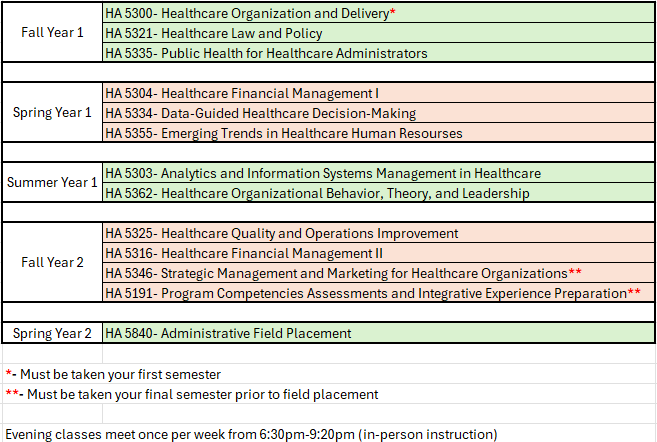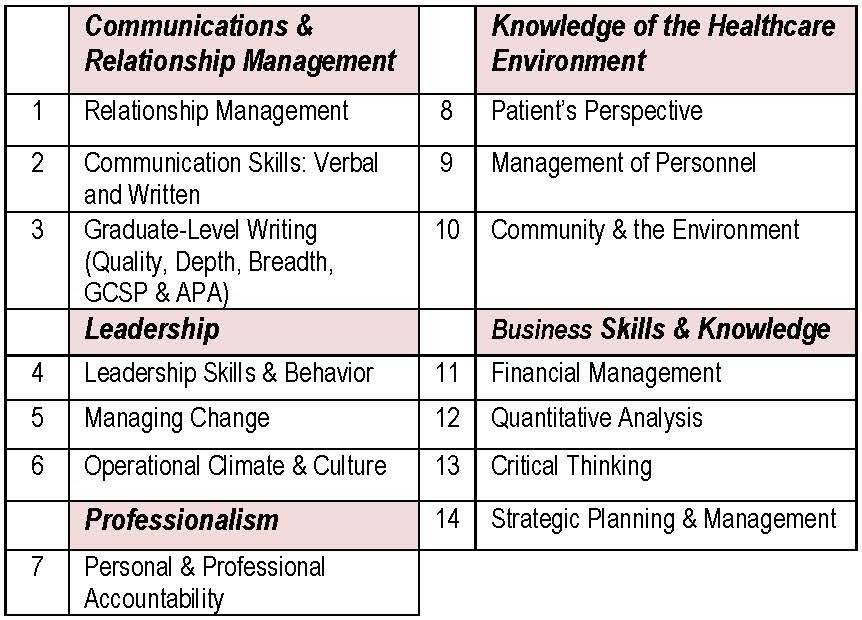Master of Healthcare Administration (MHA)
Mission, Vision, and Values
Mission
The mission of the MHA program is to prepare early-careerists to mid-level healthcare administrators for careers in a variety of healthcare settings.
Vision
The vision for the MHA program at Texas State University is to be the graduate health administration program of choice for students, faculty, alumni, and employers in the United States.
Values
We value and, teach, model leadership, service, scholarship, professionalism, and lifelong learning.
Program Structure and Pace
Structure: 100% Face-to-Face
Synchronous in-person instruction
Requirements to Apply:
Domestic
- Baccalaureate degree from a regionally accredited university
- Copy of an official transcript from each institution where course credit was granted
- a 2.75 overall GPA or a 2.75 GPA in your last 60 hours of undergraduate course work (plus any completed graduate courses)
- 2 signed letters of recommendation
- Statement of purpose
- Resume
- GRE not required
International
- Official TOEFL iBT scores required with a 85 overall
- Official PTE scores required with a 57 overall
- Official IELTS (academic) scores required with a 6.5 overall and minimum individual module scores of 6.0
- Official DET (Duolingo English Test) scores required with a 115 overall
- Official TOEFL Essentials scores with a 9.5 overall
We also offer the fully online asynchronous Executive MHA concentration HERE
Course Catalog
Visit the M.H.A catalog page for detailed course listings and descriptions.
Rankings
Best Faculty and 5th ranked MHA program overall in 2023 (intelligent.com)
For More Information Contact

Dr. Zo Ramamonjiarivelo
Associate Professor & MHA Program Director
School of Health Administration
Encino Hall, 256
Email: zhr3@txstate.edu (preferred)
Office Phone: 512.245.3497
Program Sequence

Program Competencies
The Master of Healthcare Administration (MHA) program addresses the following course competencies throughout the curriculum:




